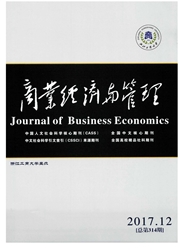

 中文摘要:
中文摘要:
文章研究了政府干预对上市公司会计报告行为的影响。首先,为了避免干预行为泄漏引发的政治成本,地方官员在实施干预时倾向于压制公司的透明化披露。其次,在以GDP增长为中心的政绩考核体系下,地方官员很可能基于政绩目标的考虑要求公司高估利润、隐藏损失。文章利用樊刚和王小鲁(2004)编制的市场化指数和其中的政府与市场关系的分指数度量政府干预水平,并从盈余信息含量和盈余稳健性入手,探讨了政府干预与会计盈余质量的关系.研究结果表明:政府干预行为确实对上市公司的盈余质量造成了负面影响.这种负面影响在国有控股公司中尤为突出。上述发现对资本市场的会计管制具有重要启示。
 英文摘要:
英文摘要:
This paper examines the relationship between government intervention and accounting reporting. Firstly, in order to hide the intervention behavior, government bureaucrats have strong incentives to prevent firms from reporting information timely and transparently. Secondly, bureaucrats indulge finns' earning management to reach his own performance goals. The empirical results show that government intervention indeed hurts earnings' quality of listed companies measured by earnings informativeness and earnings robustness; furthermore, the negative impact is more serious on state-owned companies. Our results provide important policy implications.
 同期刊论文项目
同期刊论文项目
 同项目期刊论文
同项目期刊论文
 期刊信息
期刊信息
